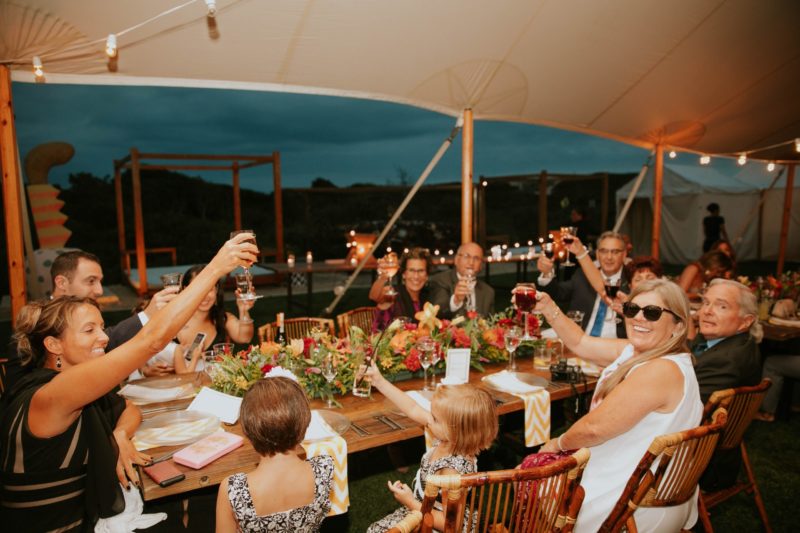What Role Does Family Play in French Society?
The French value family above all else. They cherish these close relationships and it’s an important part of French culture. But, you should know more than just the French vocabulary for family members. You should also know what a typical French family is like. The family life culture is an important aspect of modern France, and being familiar with it is extremely useful as you’re progressing towards French fluency.
French Family Vocabulary
Having a well-rounded vocabulary is crucial to French fluency. However, don’t worry about how many words you know. Reaching proficiency in a foreign language is about knowing the right vocabulary. To start your discovery of French family dynamics, here are the most useful French family vocabulary words you should know:
Close Family
- ma famille – my family
- les parents – parents
- le mari – husband
- la femme – woman / wife
- le père – father
- le papa – dad / papa
- la mère – mother
- la maman – mom / mama
- la fille – daughter
- le fils – son
- la sœur – sister
- le frère – brother
- le demi-frère – half-brother
- la demi-sœur – half-sister
Grandparents
- le grand-père – grandfather
- le papi / le pépé – grandpa / grandad
- la grand-mère – grandmother
- la mamie / la mémé – grandma / granny
- les grands-parents – grandparents
- le petit-fils – grandson
- la petite-fille – grand daughter
- les petits-enfants – grandchildren
Relatives
- l’oncle – uncle
- la tante – aunt
- le neveu / les neveux – nephew / nephews
- la nièce / les nièces – niece / neices
- le cousin / la cousine – cousin (male) / cousin (female)
In-Laws
- le beau-père – father-in-law
- la belle-mère – mother-in-law
- le beau-fils – son-in-law
- la belle-fille – daughter-in-law
Extra Terms
- l’aîné(e) – oldest, eldest
- le / la cadet(te) – youngest / younger
- les gosses – kids
- l’enfant – child
- le parrain – godfather
- la marraine – godmother
French Family Culture in French Society

French views on the family are rooted in a sense of family identity and society. This is in stark contrast to the English and American emphasis on individuality. In English-speaking communities, families encourage self-expression. Each person is unique, but the family construct remains the same.
However, in France, it’s a different value system. Families are tight-knit groups. Individualism isn’t encouraged. Instead, the French family bond defines everyone. And you can see the effect of this attitude throughout France.
The relationships between members of French families remain close. Even after their children become adults. Adult sons and daughters generally stay close to the family home. And it’s common for them to dine with their parents weekly and call them daily.
France Values Children as the Future

Raising a family in France is different than raising one in America. French parents, particularly in the middle class, take a stricter role than American parents. And the amount of freedom of movement that American children enjoy is not common in France.
French parents do not indulge children, either. They enforce the order by teaching their kids when to speak and listen. If a French child acts poorly, it reflects on the family. As a result, French parents teach their children that certain behaviors are unacceptable.
This approach to raising a family in France has stood the test of time even though there have been changes in society. These changes include an increase in single-parent homes, children born out of wedlock, and more women participating in the workforce. Despite these changes, the underlying view on how to raise children remains the same.
One issue that has become a concern is the idea that there are two societies in France. They are the “haves” and the “have nots.” Youth in France grow disaffected by a society that does not offer them the economic opportunities their parents had.
The 1995 film La Haine highlighted this problem and serves as a warning to the French society. It argues that there are problems that need to be addressed. Regular bursts of violence in the “banlieues” (suburbs) show that those problems are still acute.
French Family as a Lasting Foundation for Society

French people value equality in marriage. Despite the stereotype of the dominant French husband and the submissive French wife. In fact, husband and wife in French families hold equal responsibilities.
France also values equal marriage rights. Same-sex marriage has been legal in France since 2013. This progressive step has inspired other countries in Europe to reevaluate their marriage laws.
French families tend to stay more closely connected to their relatives than they do in the United States or in England. While this is not always the case, American families tend to be scattered throughout the country. Not a lot of thought is given to keeping everyone physically close. French families live in the same area, developing large numbers of contacts and people who can rely on each other for support.
This structured environment and this sense of order and rigidity are not universal. There are individuals and families who do not live close to relatives and who do not adhere to the generally accepted views on parenting in France. But, these people are exceptions to the common traits found in most French families.
Reach French Fluency Fast
Although generalizing French families is hard, there’s one thing they all have in common: they all speak French. And if you want to truly experience French family life, you need to learn the language too. To reach fluency fast, use OptiLingo.
This language learning app is built on scientifically-proven language learning theories. Combining comprehensible input and spaced repetition, you will not only understand your lessons well, you’ll also commit them to memory. OptiLingo presents high-frequency phrases, so you’ll instantly learn how the locals speak. Discover how much easier learning French is with OptiLingo. Try FREE today!







